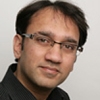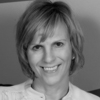Stephen Bairfelt, Purple Market Research
“The research industry is experiencing major change, led by new techniques, technological advancements and the need to reduce costs. Initially online methods had a big impact, to which we add relatively recent developments such as communities, co-creation, netnography and buzz monitoring. Advances in smartphone technology open new possibilities in mobile research. Contrary to some predictions, more traditional techniques play an important role and are still going strong. The result is a highly fragmented picture, an industry boasting a growing set of skills, but presenting a major challenge of how to incorporate, represent, describe and protect the interests of such diversity.”
Crispin Beale, Chime Insight & Engagement Group
“In tough economic times, evidence to support decisions and insights to gain competitive advantage become even more important. We need to innovate and show how new, and old, technologies – from QR codes to IVR – can deliver greater value and greater return on investment. Quality data collection is the foundation of our industry, yet we are threatened by an ageing workforce, outsourcing overseas, DIY research and a lack of new talent coming into the industry. But, let’s be positive: it’s time to champion the delivery of actionable insights and to show that researchers really can make a great difference.”
Helen Bennie, Shopper Insight
“All research practitioners strive for the highest standards of research. Agencies are rightly proud and passionate about their methodologies. Clientside companies expect robustness as a hygiene factor so that insight can be applied commercially knowing that the odds are high of the desired outcome. In a growing and global marketplace, lesser standards abound; there is a need to highlight quality and with it the commercial applicability of research. However, the focus needs to err on the side of supporting best practice and creativity whilst not straying too heavily into bureaucracy.”
Johnny Caldwell, Research Now
“The market research profession needs to understand that our audience is changing in how they engage with each other, media in general and with research. Advances in technology mean that opinion is easily published by all and gathered by all. Consequently, we need to be able to demonstrate what skilled research has to offer. We need to be aware of how we engage with different types of respondent and pick the medium that is most appropriate for them. Of course, we may find that our audience takes on an element of polarity and mixed methodologies come to the fore.”
Gina Cannon, Out-in-House Marketing
“In recent years marketing has reinvented itself with the most significant change being the shift from a push model to one based on attraction, the latter being a process which allows for much greater levels of audience participation. Marketers are now able to attract and observe customer and prospect behaviour, score their levels of engagement, and elicit preferences and ideas through knowledge-based articles and exchanges. Equipped with analytical technology and a new marketing methodology, organisations are researching their customers, so researchers must decide what role they want to play and where they will add value within this new social context.”
Martin Cary, Illuminas Global
“We all spend a lot of time and money responding to procurement requests focused on cost. Current practices are still based on 1960s economics of perfect information and competition, which has little relevance to valuing complex advisory services well. There has to be a better way than researchers just gaming bad procurement practice. Ultimately, the costs of misunderstanding how to buy good research will be borne by the client and the brand, no matter what the supplier contract says. There’s an MRS role in educating, standing up to bullies and explaining how MRS ethics and good data security are key.”
Vipul Chokshi, Field Initiatives
“Research methodologies have benefited significantly from advances in digital technologies. But what about recruitment: are we missing a trick? It seems the bulk of the recruitment is still done by our network of loyal field recruiters. Online recruitment enables us to target new types of respondents and allows us to easily monitor attendance, thus making the thorny issue of repeat attendance easier to manage. Used correctly and for the right projects, digital methods have the potential to be a significant tool in the recruitment toolbox and in ensuring that recruitment is moving forwards with the rest of the research world.”
Kirsty Fuller, Flamingo
“The single biggest issue facing our industry has to be commoditisation. If we are pigeon-holed as ‘data providers’ we are at risk of being overtaken by technology companies who deliver data more quickly, with a wider geographical spread, processed and packaged in a neat visual format. The opportunity for our industry lies in a ‘less is more philosophy’. Clients are drowning in information but low on the oxygen of foresight, ideas and inspiration. We are the experts who put meaning and humanity back into data to make simple the stories of people, brands, categories, purchase journeys, engagement and opportunity.”
Gavin Hilton, RAPP
“Give me any subject, product or brand and I can tell you what people think about it after a few judiciously applied hashtags and a quick squint at Google Analytics. So what is research for, any more? This is an opportunity, not a threat. Encourage the automation of all the data you can. Let robots do your jobs, draw the graphs, spot the trends. And then get on with the interesting stuff. Have ideas with consumers. Destroy things. Change things. Make things. Use real research to generate hypotheses, not answers. You can let the robots test them for you later.”
Liz Nelson, Fly Research
“The quality of online and mobile must be improved. At the same time clients and agencies need to appreciate that online panels are not commodities: there are good and bad. The MRS must set standards and promote the value of surveys done by those who abide by a professional code. Unlike in Germany where there have been successful prosecutions of people fraudulently claiming to be doing market research, the MRS has ignored the ‘cowboys’. Good research improves decision-making and more than ever, at a time of recession, we need to be recognised for the added value we provide.”
Surinder Siama, ResearchTalk
“The biggest issue for MR has to be relevance. MR was born in a time of information scarcity. So we naturally became the gate-keeper. In an age of information abundance, that privileged position is being challenged. The latest wave of innovation is delivering faster, cheaper and often better ways of understanding the human condition, be these in social media mining, data analytics or biometric techniques. Yet much of this innovation is from outside the industry. I believe we can and should develop more home-grown innovation. Specifically around methodologies that focus on the importance of social and emotions in driving behaviour.”
Yvonne Taylor, Product Perceptions
“It has long been a concern of mine that clientside researchers seem to be less engaged with the MRS than agency researchers. The problem with this is multi-faceted – three key areas being: ( 1 ) debate and discussion can be dominated by agency researchers and not necessarily focused on the issues facing client-side researchers; ( 2 ) the campaigning side of the MRS is weakened without clientside/industry support; ( 3 ) the status of the MRS as the professional body representing market research professionals is weakened. To truly drive the professional status of market research on the clientside we need to address this now.
Alongside the council vote is the election of a new chairman of the society. Here are a few words from the candidates in the running:
Nikki Bell, FMR Research and Leslie Sopp, Financial Services Authority
“A key challenge for the sector, and MRS, is maintaining the focus on and resourcing for research in the current economic climate – the value of good evidence needs to be recognised more, in terms of the insights extracted and the outcomes achieved, for our sector to thrive. We also have to be smarter and more professional about the way research is conducted, including DIY research; effectively engaging more of the related communities such as insight management and database analytics, and ensuring that the public and businesses, in the UK and internationally, continue to appreciate the value and purpose of data.”
Phyllis Macfarlane, GfK NOP
“One major issue is attracting and training the right people. We need researchers with a broad education: observant and thoughtful, intuitive and rigorous, culturally sensitive but locally grounded, emotionally intelligent, experimental and practical. Not necessarily all these things themselves but able to know where to find, and how to pull together, the skills they need to engage with clients and with big data-sets, and give advice based on the evidence they find. We need to provide the networks to support and develop people to deliver intelligent and valued market research, in the broadest definition of the term.”




















0 Comments